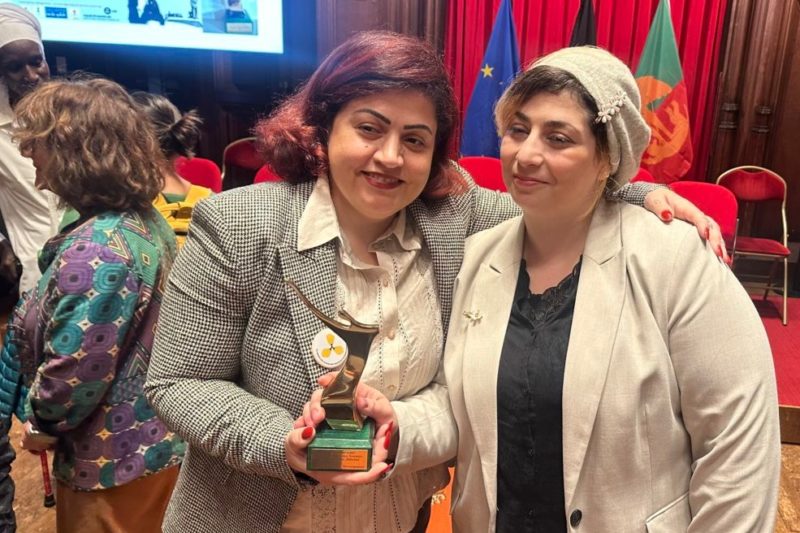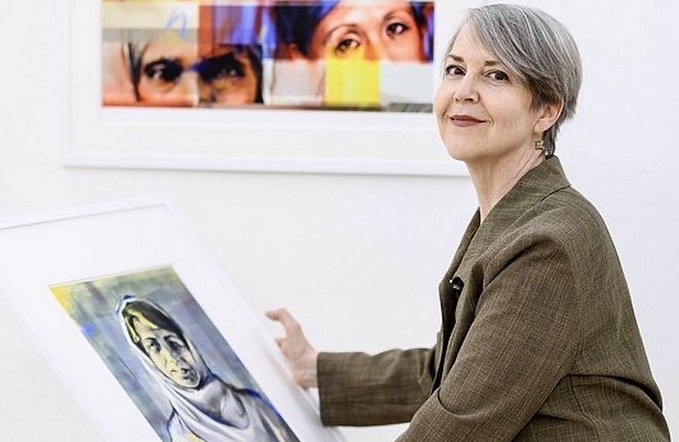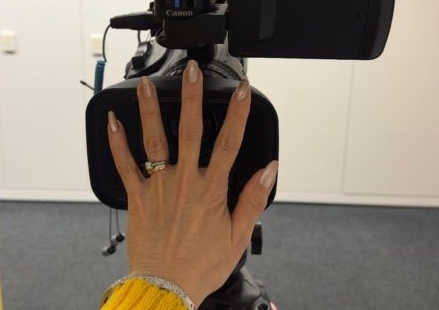Journalism in Afghanistan : “I couldn’t stay silent, but telling the truth risked my life” (2/6)
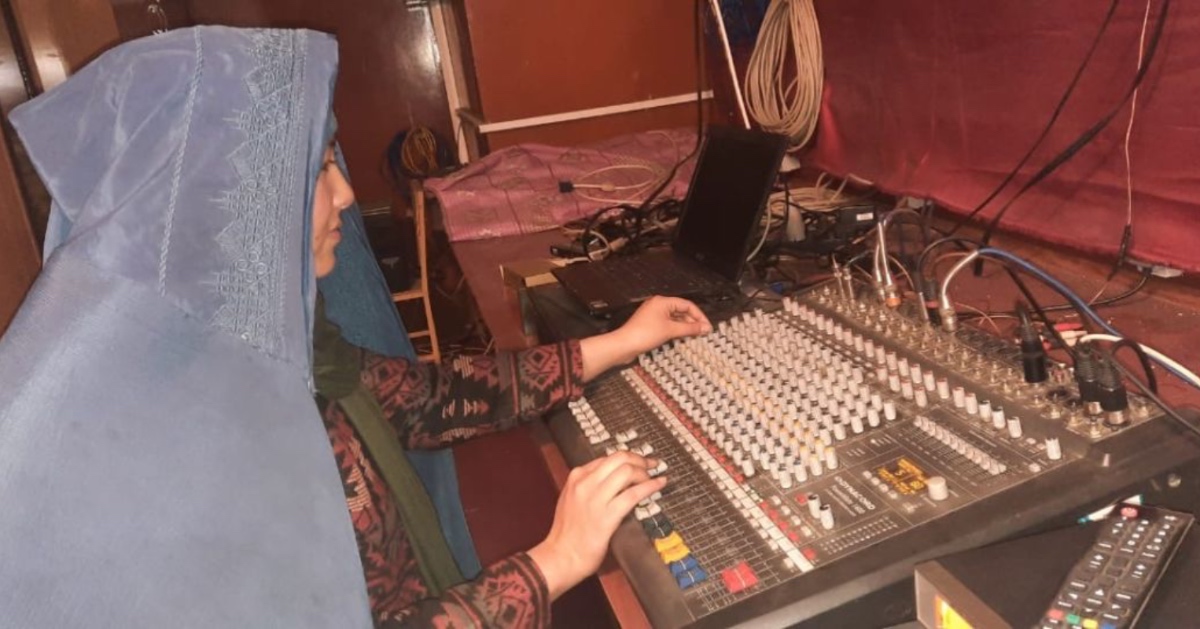
In this second exclusive interview with journalists from Afghanistan, we speak with journalists who have overcome enormous hurdles. Among them is Sohila Gulistani, a young woman from Ghazni province.
In a nation where the media landscape has drastically transformed in recent years, these journalists continue to pursue truth in an environment marked by political and social upheaval, risking their lives to report on issues that matter. Their work is crucial in a society where freedom of speech, especially for women, is constantly threatened.
Among them is Sohila Gulistani, a young woman from Ghazni province, Afghanistan. Born into a traditional family, her dreams were shaped and often constrained by the conservative values that governed her life. Simple aspirations, like riding a bicycle through Kabul or playing for the national girls’ basketball team, were deemed impossible. Like many girls from Afghanistan, Sohila’s future seemed predetermined by societal norms that limited her freedom and independence.
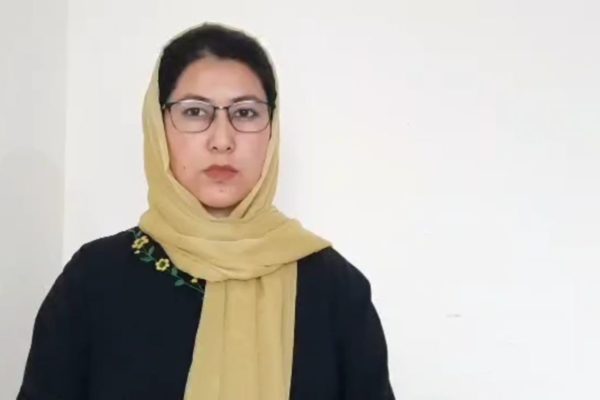
Determined to break free from these restrictions, Sohila worked tirelessly, seeing education as her only path to liberation. For her, university represented not just an opportunity for a better life, but an escape from the suffocating expectations imposed on her. In this interview, Soheila shares her journey of resilience and hope, embodying the fight for freedom in a world where women’s voices are often silenced.
Traditions and family values
In an interview by phone with Latitudes Sohila Gulistani said: “I am a girl from Ghazni province, in Afghanistan, where my life was shaped by traditions and family values rooted in conservative principles and beliefs. Being born into a traditional family in Afghanistan meant that from the very beginning of my life, many of my childhood dreams and desires were influenced by unwritten rules and cultural restrictions”.
Dreams such as riding a bicycle on the streets of Kabul or even imagining that “I could play for the national girls’ basketball and shine on international stages were nothing more than fantasies. For many girls from Afghanistan, the path of life is predetermined by the traditions and norms of society, and these norms make it incredibly difficult to dream of living freely and independently.”
“From my early school days, I was determined one day to free myself from these stifling limitations through relentless effort and hard work. I studied diligently in school, seeing success at university as the only way to escape the monotonous and suffocating life I was trapped in. For me, going to university was not only a path to a better future, but the only way I could rescue myself from the repetitive, mundane life that I was forced into.”
“Living in a traditional family where there was no room for the dreams and ambitions of girls was always a source of pain for me. But I believed that through education and success in my studies, I could break this cycle and carve out a new path for myself.”
A new world
In 2019 (1398 in the Afghanistan calendar), after continuous effort and perseverance, “I successfully completed a degree in journalism at Kabul University. University opened up a new world for me, a place that gave me the opportunity to meet new people, make many friends, and better understand the world around me. This period showed me that there is a world full of opportunities and ideas beyond the traditional boundaries in which I was raised. Journalism transformed me into a different person.”
“This field allowed me to study media and mass communications more deeply and to view cultural and social impacts from a different perspective. I understood how media can influence key social issues such as population growth, inequality, consumerism, fashion, social identity, and even violence and ethnic conflicts.”
“Journalism transformed me into a different person.”
“I also realized how critical and influential media can be in a country like Afghanistan, which is culturally and religiously diverse yet deeply complex. In a traditional society like Afghanistan, media are not just sources of information, they can play a decisive role in changing social and cultural attitudes. This profound understanding of the role of media shaped my professional path as a journalist and media activist.”
After graduating, “I started working as a reporter for the National Council of the Islamic Republic of Afghanistan in 2020. This job was a new opportunity for me to become closely acquainted with the political and social issues of my country and to take steps as a professional journalist toward change and awareness-raising.”
However, nothing in Afghanistan was stable. With the arrival of the Taliban and their takeover of the country, life changed drastically for everyone, especially for women. With the fall of the republic and the rise of the Taliban in 2021, women were quickly stripped of their basic rights, such as the right to work and education. Like many other women, “I lost my job, and in a moment, all of my achievements were wiped away.”
Bread, Work, Freedom
The return of the Taliban cast a dark shadow over Afghanistan’s social and cultural landscape. Women and girls took to the streets, protesting against the restrictions imposed on them with the slogan ‘Bread, Work, Freedom’. Protest movements emerged, and the courageous women who participated in these demonstrations proved that they would never turn back. They showed that they would not remain silent in the face of oppression and became the voice of millions of Afghanistan women. “I, too, joined this movement and, alongside other women, fought for justice and freedom.”
From 2021 to 2023, in all the media outlets “I worked for, I focused my reports on women’s issues and their rights. During this difficult period, I strove to be the voice of women who lived amidst violence, tyranny, and restrictions. In 2022, I worked as a reporter for Radio France International (RFI), and in a programme called ‘Stories of Women’ in Afghanistan, I narrated the experiences and stories of Afghanistan women. Additionally, I wrote feature reports and stories about the lives of Afghan women for several online media outlets.”
Women, Life, Freedom
“One of the concepts that have always held special significance for me is the notion of ‘Women, Life, Freedom’. For me, these three words are not just a slogan, they represent a profound truth in human life. Freedom, truth, and understanding the power of media have always driven me to be the voice of women who live amidst deprivation and injustice. I believe that media can have a tremendous impact in raising awareness and changing society. This belief motivated me as a journalist to bring the bitter, painful, yet inspiring stories of Afghanistan women to the world.”
“These three words are not just a slogan, they represent a profound truth in human life.”
A source of inspiration
One story that will always stay with me is the life of Shamsia, a girl who, at the age of 15, was forced by her family to marry a 30-year-old man. For her, this marriage meant the end of her dreams and the beginning of a life filled with pain and suffering. Shamsia was forced to do hard household labor, and eventually, she developed a spinal disc problem. After surgery, she lost the ability to move her legs and became permanently paralyzed. But this was only part of her suffering. Her husband divorced her and abandoned her due to her physical disability.
Shamsia, with her incredible courage and resilience, has spent over 20 years in a corner of her parent’s house, doing needlework to contribute to the family’s expenses. With a needle and thread, she not only earns a living but also momentarily escapes the painful memories of the past. Her bravery and patience have always been a source of inspiration for me.
“In 2023, I worked as a reporter for the Afghanistan news outlet ‘Khaama Press’. However, the restrictions for female journalists were immense. We could not attend high-level official meetings or freely go out to report. Traveling to districts and provinces without a male guardian was forbidden, and even access to information was severely limited for us as female journalists. Conducting interviews with government officials and leaders was practically impossible.”
“My goal is to be the voice of the girls and women.”
Ultimately, with the increasing restrictions and the dangers female journalists faced, “I, too, was forced to leave my job and emigrate from Afghanistan”. Being a journalist in Afghanistan no longer had any meaning, as the Taliban showed no respect for freedom of speech or freedom of the press. It became clear to me that continuing as a journalist in Afghanistan meant complying with Taliban orders and reporting in their favor. But “I could not remain silent in the face of their crimes, and if I tried to tell the truth, my life would be at risk. For this reason, I decided to migrate and continue my work as an independent journalist elsewhere.”
“Although life in exile and far from my homeland is difficult, I still strive to achieve my dreams. The situation in Afghanistan is bleak, but even reflecting on my dreams gives me energy. I always try to remain patient and strong in the face of challenges. My goal is to be the voice of the girls and women…”


